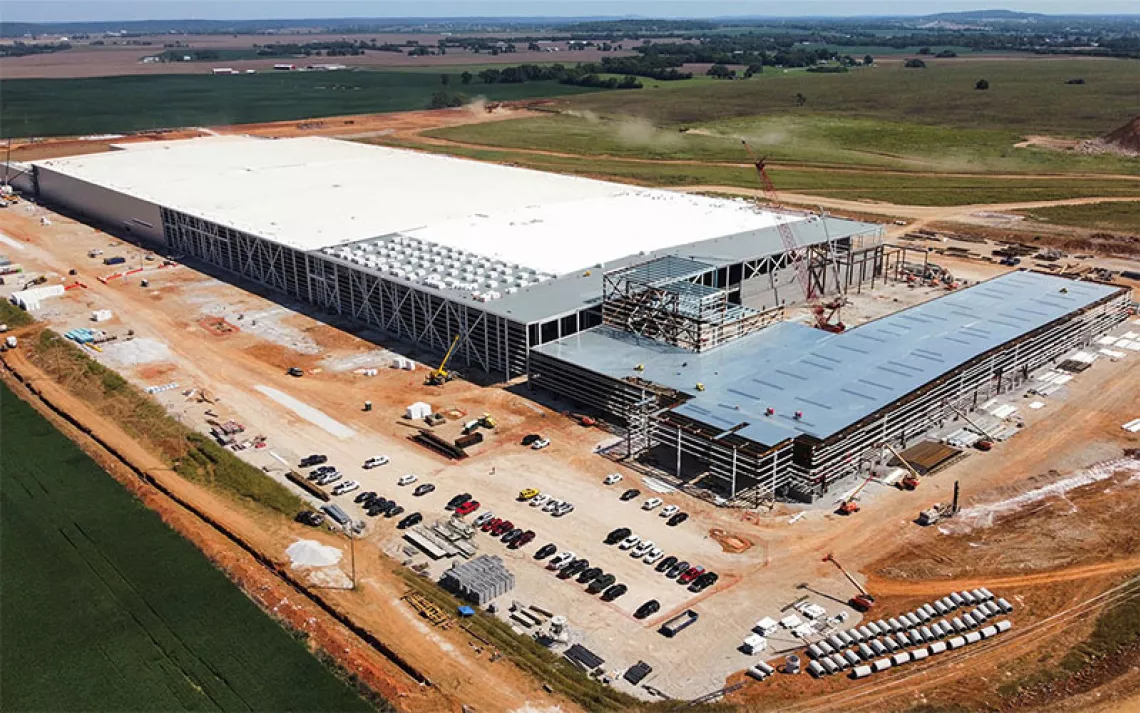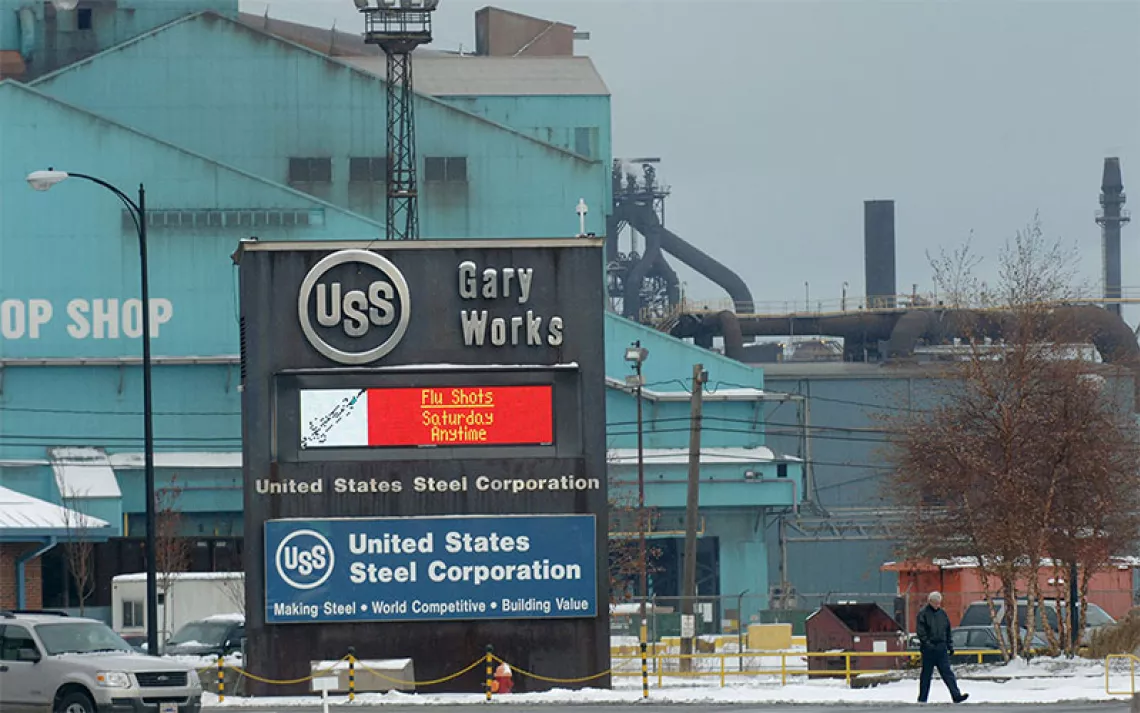It’s Time for Congress to Build Back Bolder
To ensure a truly just transition to a clean energy economy, workers must have the right to form unions

Illustration by Wildpixel/iStock
When Congress returns from its annual summer recess, much of the action on Capitol Hill will turn to the Democratic majority’s efforts to pass an ambitious “reconciliation bill” that offers a once-in-a-lifetime chance to tackle climate change and the United States’ vast social and economic inequalities. The legislative blueprint promises to make significant investments in renewable energy, address many of the racial inequities that have existed since the country was founded, and get to the root of environmental injustices, making it a cornerstone of the Biden-Harris administration’s goals to “build back better.”
I find this moment of brilliant possibility inspiring, a unique opportunity for us to create healthy and safe communities together. But it’s also a reminder of how much work there is to be done and how much it will take to repair the chronic lack of investment in communities of color. In many communities of color, there is little hope for meaningful change and improvements in quality of life—a lack of hope that comes from a long history of being left out of prosperity.
Many communities of color struggle with high unemployment, poor job prospects, and a lack of access to public goods like high-speed internet, reliable transit, and adequate health care. For example, 10.7 percent of Black Americans lack health insurance, compared with 5.9 percent of non-Hispanic whites, according to the Center for American Progress. In many cities, white and high-income residents have better access to mass transit, the Urban Institute reports, even though communities of color have lower car ownership and rely on mass transit to get to work. Such inequities are founded in vast wealth disparities, as the typical white family has at least 10 times as much wealth as the typical Black family, a result of long-standing racist policies that kept Blacks from homeownership.
To overcome such huge issues as systemic racism and climate change will, of course, require a plan for full economic recovery focused on the goal of a fossil-fuel-free economy and anchored in principles of fairness. Thankfully, one part of that plan is in place. It’s called the Justice40 Initiative, and it is President Joe Biden’s commitment to ensure that 40 percent of the benefits of federal investments go to historically disadvantaged communities. Additionally, the initiative tracks performance toward that goal through the establishment of an Environmental Justice Scorecard. The Sierra Club will be working with environmental justice leaders in the Equitable and Just National Climate Platform and Forum to ensure that this executive order is implemented during this administration.
There are already living models of how focusing federal investments on disadvantaged communities can reap enormous gains. In South Carolina, for example, a group called ReGenesis that is led by a former South Carolina legislator named Harold Mitchell succeeded over the course of 20 years to clean up two Superfund sites while in the process generating jobs for local residents and reducing crime.
Such public-private partnerships are important. But to achieve lasting equity, we need to go further and ensure that ordinary workers have enough power to balance the interests of the giant corporations that are fueling the climate crisis. And that means that every employee should enjoy the basic right to freedom of association and to form workplace unions.
Moving through Congress in parallel to the two infrastructure bills is another crucial piece of legislation: The Protecting the Right to Organize Act. Already passed by the House of Representatives in March but still waiting on a vote in the Senate, the PRO Act would guarantee employees’ rights to join or form a union and to go on strike.
Having a voice at work is essential for workers to have power and for broader democratic power in our communities and our country. According to one study, union households are more politically knowledgeable. In other words, when workers’ rights are protected, whole communities can benefit from stronger civic engagement.
So, when we talk about inclusive policies, we can't be inclusive without robust representation, which means every person within a community has a voice. And having a voice also means having a voice in the workplace—the source of our bread and butter and where most of us spend the majority of our waking hours. It is only with robust representation that people can advocate for the needs of their community, including clean air, clean water, sewage infrastructure, adequate housing, modern roads and bridges, good schools, and clean energy.
A PRO Act to guarantee employees’ right to free association, an ambitious infrastructure bill to tackle climate change, and bold voting rights legislation like the John Lewis Act—together, these can be the cornerstones of lasting, widely shared prosperity. That’s a winning formula to build back bolder.
 The Magazine of The Sierra Club
The Magazine of The Sierra Club



